By Lisa Bland –
Vanessa Scott’s passion for the ocean and water began in childhood. She grew up sailing in the Mediterranean and Pacific Northwest, and her family has lived on the BC coast for four generations. She currently resides in the Comox Valley on Vancouver Island and has studied journalism, communications and, more recently, community economic development. She is a passionate writer, storyteller, and advocate for watersheds and salmon. She has also worked extensively in public engagement and environmental activism, and more recently has focused on conflict resolution in communities addressing polarized issues around natural resources and economic development.

Vanessa is currently a director with the Brooklyn Creek Watershed Society in Comox and collaborates with the Comox Valley Land Trust and Comox Valley Conservation Partnership. She was drawn to the Rivershed Society of BC’s (RSBC) Sustainable Living Leadership Program (SLLP ) after hearing Fin Donnelly speak at a Partnership for Water Sustainability in BC event about Rivershed CPR—conservation, protection, and restoration. “It was such a concise and vivid way to describe this work,” she says. “I work in conservation, protection, and, more recently, in restoration, and I thought, ‘Here’s a society I would really like to be involved with.’ The mentorship aspect and opportunity to share and learn with like-minded people really appealed to me, as well as the opportunity to do a wilderness excursion that wouldn’t have been possible otherwise.”
Vanessa’s goal on the SLLP journey was to experience the headwaters of the Fraser River and to be further inspired as a headwaters ambassador for the Comox Valley. Her projects include assisting Project Watershed to restore a decommissioned sawmill site on the Courtenay River back to its natural riverine and estuarine habitat. Project Watershed is a collaborative partnership with the City of Courtenay and the K’omoks First Nation to support wild salmon in the Courtenay River and K’omoks Estuary. With experience working in Indigenous relations, economic development, and reconciliation, Vanessa is involved in event coordination, public storytelling, and promoting a strong vision of reconciliation in action. Vanessa is also involved in conservation work in the Morrison Creek headwaters, restoration and protection of the Comox Lake watershed, as well as community engagement work on Northern Vancouver Island around salmon farms and wild salmon.
“Looking through the lens of headwaters protection has helped me focus,” she says. “My goal as a speaker and communicator is to get the public excited. Being able to bring the message from the headwaters of the Fraser River and share my travels down the greatest salmon river on earth—reminding people that we still have abundant salmon rivers in our backyard, and about how valuable they are to our communities and that we need to step up to protect them—is something I’m really grateful to be able to do.”
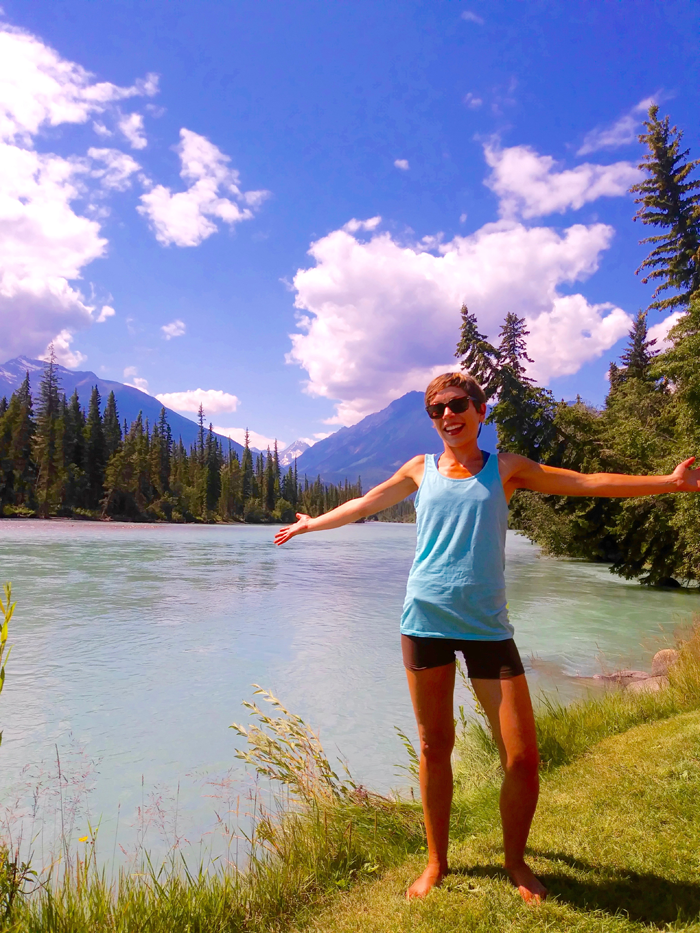
Vanessa found the leadership component of the SLLP trip valuable and enjoyed the experience of engaging with a dynamic group of young leaders. “We discussed what we felt were the most important leadership qualities and I think back often to what Fin Donnelly said—his was the ability to inspire,” she says. “This is significant to me, considering what he’s been able to achieve.”
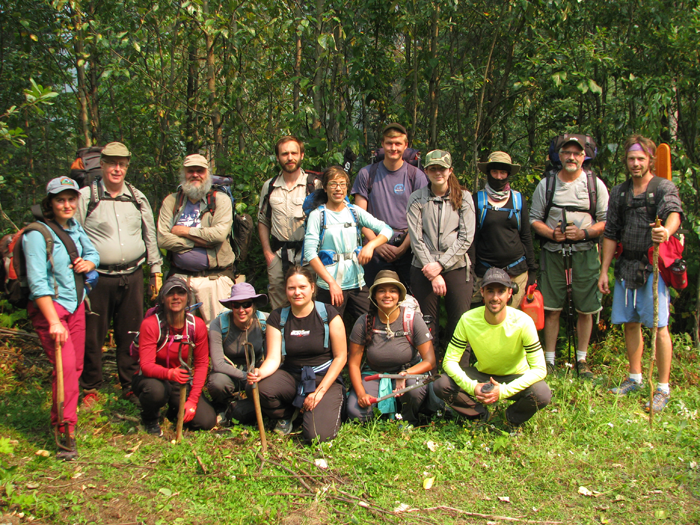
On the journey, Vanessa learned how the Fraser River and its key tributaries are the most endangered in BC. “We had front row seats to BC’s unfolding forest fire scenario, and I learned first-hand how precarious our situation really is,” she says. “I felt that the summer of 2018 was going to be a profound year, and when I returned home, I was stunned to find a CBC article referring to the Fraser River as ‘historically’ the world’s greatest salmon river, due to the current endangered status of the sockeye run. It galvanized my conviction and passion going forward to continue to get the urgent message out there that we must do the necessary restoration work.”
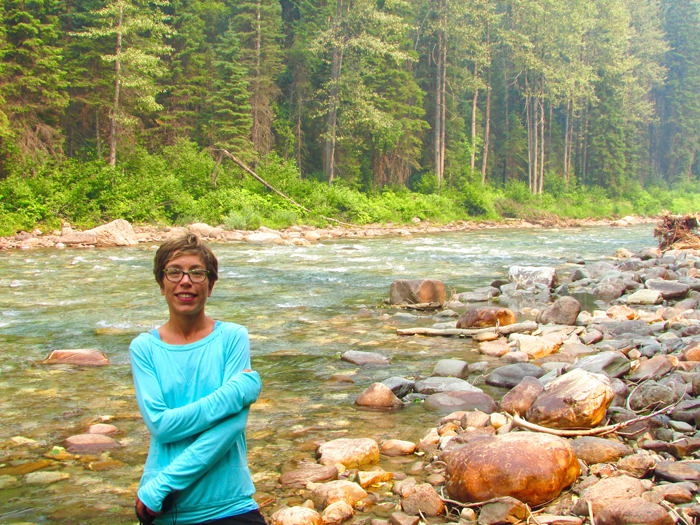
Challenging moments Vanessa looks back on include the differences between reading about and actually experiencing camping. “After I got home and looked at all of the books I was reading in preparation for the trip, such as philosophical travelogues and a book by Roderick Haig-Brown, I realized I should have been reading about how to survive in the woods!” she laughs. “I romanticized everything.”
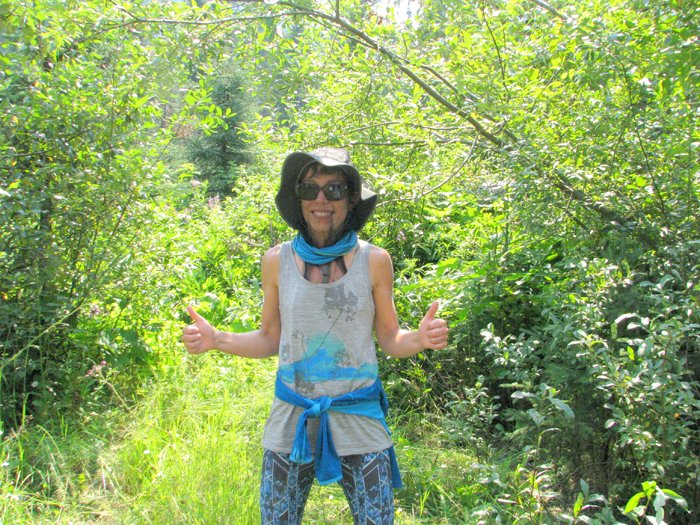
Vanessa’s highlights included the waterfalls in the Fraser headwaters, getting to know the other participants, the epic scenery, and paddling in the Voyageur canoe. “I hadn’t travelled on a river or been in the mountains like this before, so the scale of the natural environment was a huge personal highlight,” she says. “I enjoyed paddling in the bow of the canoe and setting the pace, and having the incredible vista of the Robson Valley stretched out before me.”
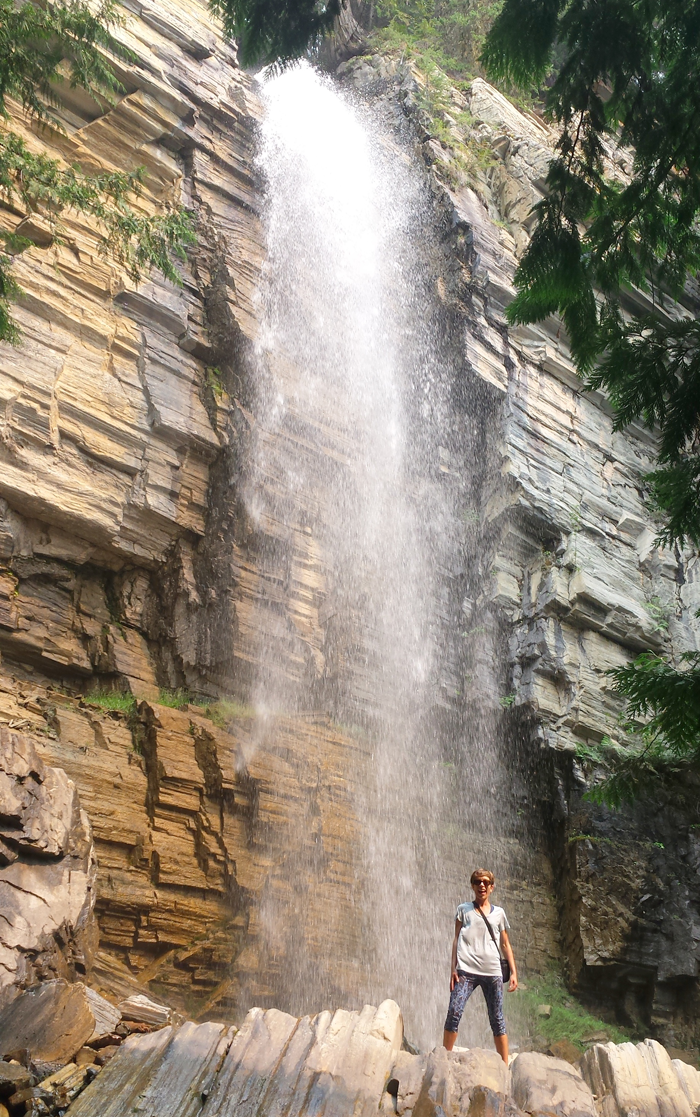
“The transformative element of being in such an epic river system impacted me the most,” she says. “When reflecting on the symbolic imagery of a river, I think you always have a choice when you come to a new path,” she says. “You can continue on the main channel or take a tributary—and you have to leave things behind to keep moving forward. I’ve been reflecting on the strength of knowing that we’re all flowing together towards the bigger ocean.”
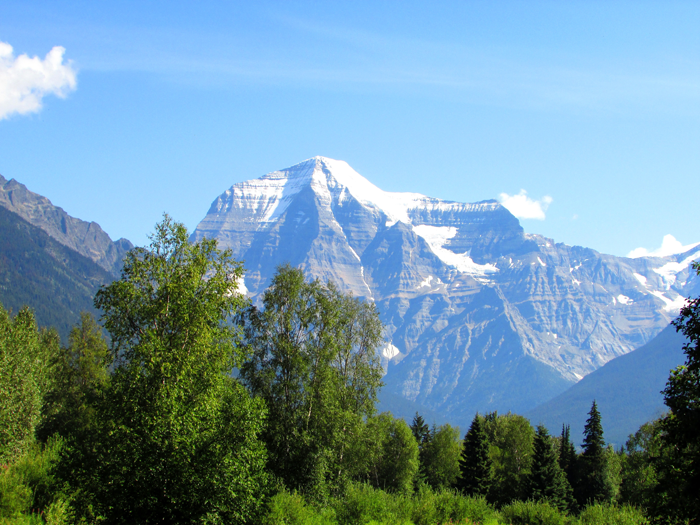
Vanessa reflects on the headwaters journey, realizing it as the catalyst for a major turning point in her life that will help her move beyond her first six years as an activist and storyteller. “This transformation happened on the river,” she says. “I’ve turned a new page and understand my role as a leader and an advocate for water on a new level. My passion is clear, and I’ll never forget any details of this summer.”
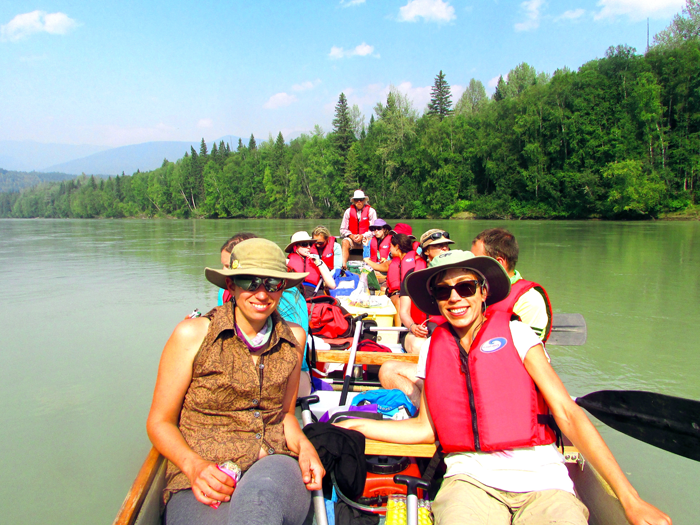
Since returning home, Vanessa has been involved in numerous events and projects. In the fall of 2018 she gave a Halloween-themed talk at the Cumberland Community Forest Society’s Science Pub Night about the summer of 2018 and how to deal with some of the fear and anxiety of global changes. “They asked me to scare people but of course I wanted my talk to leave people inspired and challenged to take action,” she says. “Here in BC, we have an opportunity to turn things around and do good work together.”
Vanessa describes a keynote address by Bob Sanford, UN research chair in water and climate security, delivered to the Asset Management BC Annual Conference in September 2018. Sanford was discussing the summer of 2018 when he talked about the northern hemisphere and how humanity has passed an important historical turning point. “It’s mind-blowing what he says,” says Vanessa. “The world changed and climate scientists’ worst fears came true, and things that weren’t projected to happen until 2100 are happening now in the Arctic—yet the 48-minute video has fewer than 200 views. Everyone on the planet should be watching it.”
The film is very stark, she says. “After the death of the baby southern resident killer whale in the summer of 2018 and the state of the Salish Seas and their population decline, it almost felt like the message is, ‘Are we going to restore things or are we going to turn our backs once and for all?’ It really does come down to their food supply and that’s why the salmon are integral to everything,” she says.
Since the journey, Vanessa’s desire to speak for the headwaters and the salmon has come full circle and further ignited her commitment to action. “When I first became an activist, I successfully fought against an aquaculture development near where I lived because of sensitive habitat,” she says. “In the fall of 2017, I saw a salmon population come back for the first time and try to spawn in the creek. It was incredible—watching them battering their bodies against the rocks to get into that pool was so powerful.
“Unless you’re rooted in your passion, it’s pretty hard to inspire,” she says. “I feel like I’ve been given an opportunity as a storyteller, and now I can speak for headwaters of rivers in a new way.”
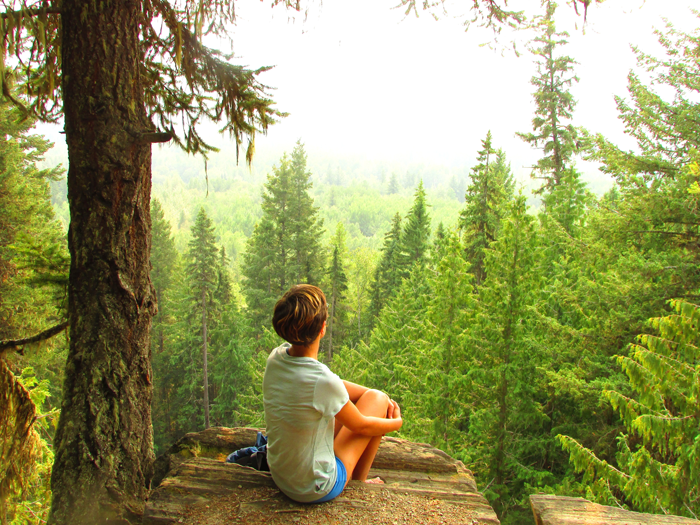

https://rivershed.com/get-involved/sustainable-living-leadership-program/about-the-sllp/
